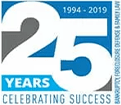When it comes to bankruptcy, Chapter 7 is the most common form that can help end debt and harassment.
Parker & DuFresne of Jacksonville works with you when filing bankruptcy Chapter 7, otherwise known as liquidation bankruptcy.
Chapter 7 is for you if:
- You are struggling with unsecured debts like medical bills and credit cards, and
- You are either handling your mortgages and car notes or you want to surrender your house and or car.
It is essential to gain the services of a talented attorney for this process.
We at Parker & DuFresne are top Chapter 7 bankruptcy lawyers in Jacksonville, Florida. Our skilled team will sit down to determine if this bankruptcy chapter is the right choice for you.
Do not forget to bring preparation items with you when you are meeting with an attorney. We list those items at the bottom of this page for your convenience.
If we determine that you should file a Chapter 7 bankruptcy, our attorney will walk you through the process.
Chapter 7 Steps
Filing bankruptcy Chapter 7 is no small task.
We at Parker & DuFresne are here to walk you through the process. Contact our office for a free initial consultation.
Step 1
Your attorney will start by investigating your financial circumstances.
Using your relevant documentation, we will conduct the “means test,” which determines your eligibility to file Chapter 7 bankruptcy.
If you qualify, we will prepare your bankruptcy petition and schedules.
Step 2
Your attorney will start by investigating your financial circumstances.
Using your relevant documentation, we will conduct the “means test,” which determines your eligibility to file Chapter 7 bankruptcy.
If you qualify, we will prepare your bankruptcy petition and schedules.
Step 3
Before we file your bankruptcy case, you will review all of the documents with us, including the bankruptcy petition and schedules.
If you must file your bankruptcy immediately (to stop a foreclosure, repossession or wage garnishment for example), we can do it the same day you come in.
Filing a bankruptcy will immediately trigger the “automatic stay,” stopping all collection efforts against you.
We must then submit any remaining schedules within two weeks of filing your petition
Step 4
After you are assigned a case number, the bankruptcy court will appoint a trustee and a defined date for the 341 Meeting of Creditors.
At this point, creditors may not continue pursuing you.
At the Meeting of Creditors, your Chapter 7 bankruptcy lawyer will thoroughly review your petition with the trustee, your creditors, and you.
Step 5
If within 60 days, the trustee or the creditors do not challenge your right to eliminate your financial obligations, the court will discharge your debts.
A Discharge signifies the end of your case.
Unless you have worked out an agreement with your trustee to “buyback” your non-exempt assets, the case will be closed shortly after the entry of the Discharge.
Step 6
Finally, you will be able to work on improving your financial affairs.
At this point, we use our proven approach to help you rebuild your credit.
File Fast Option
Our team’s File Fast option allows consumers to file bankruptcy before they pay our attorney fee. Learn more about this option here.
Filing a Chapter 7 bankruptcy is no small task. We at Parker & DuFresne are here to walk you through the process. Contact our office for a free initial consultation.
Preparation Instructions
Our staff will advise you which documents to bring to our consultation.
They may include the following materials:
- State issued photo ID and social security card
- Federal income tax returns for the previous three years
- Statements for all bank accounts for the previous six months
- Employment pay stubs for the previous six months
- Titles and registrations for all vehicles along with written payoffs
- Monthly statements and plan documents for all investments
- Purchase contracts
- Leases or promissory notes
- Bills, invoices, and credit card, loan, and mortgage statements for which you are personally liable
- Deeds and satisfied mortgages for owned real estate
- Divorce documents, if divorced








